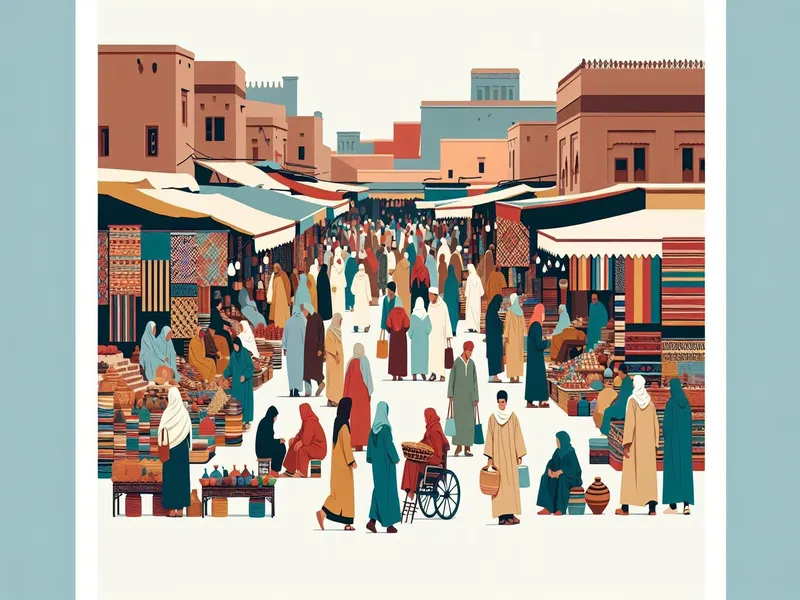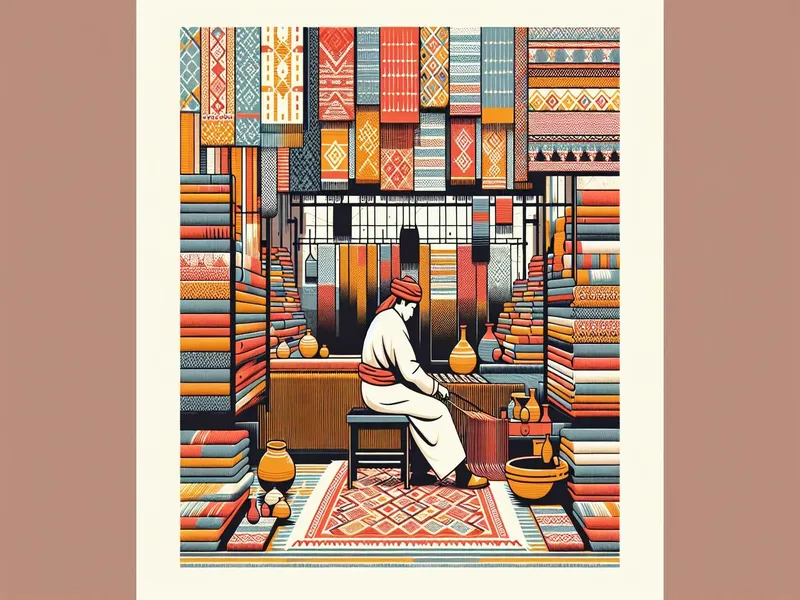
From the bustling souks of Marrakech to the ancient pyramids of Egypt, there’s a treasure trove of experiences waiting to be discovered. If you’re seeking an immersive journey that goes beyond typical tourist spots, you’ve come to the right place.
Ignoring the depth and diversity of North African cultures means missing out on unforgettable experiences and profound connections with local communities. Without proper guidance, you might find yourself overwhelmed by choices or miss hidden gems that could elevate your trip from ordinary to extraordinary.
I’ve spent years traveling through North Africa, uncovering its secrets and soaking in its vibrant culture. My firsthand experiences ensure you’ll get authentic insights and practical tips for making the most out of your visit.
Whether you’re a history buff, foodie, or adventure seeker, this guide will cater to your specific interests. Different audience segments can expect tailored advice that ensures relevance and enriches their travel experience.
I understand how daunting it can be to plan such a culturally-rich trip. Trust me; I’ve been there too. Let me help you navigate through this fascinating region with confidence and ease by sharing my expertise and passion for cultural travel in North Africa.
For more ideas on enriching your travels with unique activities, check out our comprehensive guides.
A Glimpse Into North African Culture
North Africa’s culture is like a rich world, woven from the threads of history, religion, and tradition. When you step into cities like Marrakech or Cairo, you’re not just visiting; you’re time traveling. Let me paint a picture for you.
Historical Influence
North Africa’s past is filled with ancient civilizations, including the Berbers and Pharaohs. Imagine standing before the Pyramids of Giza—massive structures that have stood tall for over 4,000 years. It’s surreal. You’ll feel a sense of awe as if you’ve connected with an era long gone but still very much alive in these monuments.
Religious Diversity
The region predominantly follows Islam, but you’ll also find traces of Christianity and Judaism. Visiting a mosque during call to prayer can be a transformative experience. The melodic chants resonate through narrow streets, creating an atmosphere that’s both peaceful and profound.
Traditional Crafts
Artisans in North Africa are masters of their craft. Picture yourself wandering through souks (markets) in Fez or Tunis, where stalls overflow with vibrant textiles, intricate pottery, and handwoven carpets. I remember buying a beautifully detailed rug from a craftsman who explained how his family had been weaving rugs for generations.
Culinary Delights
Food in North Africa is an adventure on its own. Tagine—a slow-cooked stew named after the pot it’s cooked in—is something you must try. Think succulent lamb simmered with apricots and almonds; it’s like tasting history itself. And don’t get me started on mint tea—it’s served everywhere and symbolizes hospitality.
Must-try Dishes:
- Couscous: Steamed semolina grains served with meat or vegetables.
- Harira: Hearty soup made with lentils and chickpeas.
- Briouats: Pastry stuffed with meat or sweet fillings.
Music & Dance
Music here is deeply rooted in tradition yet incredibly diverse. From the rhythmic beats of Gnawa music to the soulful tunes played on an oud (a pear-shaped string instrument), there’s something hypnotic about it all. I once joined a local celebration where everyone danced freely under the stars—it felt liberating.
Festivals & Celebrations
Festivals offer another window into North African life:
- Mawazine Festival (Morocco): Celebrates world music.
- Dougga Festival (Tunisia): Held among Roman ruins showcasing drama and dance performances.
These events blend ancient customs with contemporary flair, making them unforgettable experiences.
Visiting North Africa isn’t just about seeing places; it’s about immersing yourself in cultures that have thrived for millennia. Whether you’re exploring bustling markets or enjoying local delicacies at a cozy café, every moment feels significant because it connects you to something larger than yourself—a vast cultural legacy waiting to be discovered.
Historical Landmarks And Sites

Exploring North Africa’s historical landmarks is like stepping into a time machine. The region is teeming with ancient wonders and colonial gems that tell fascinating stories of the past.
Ancient Temples And Ruins
If you’ve ever dreamed of being an archaeologist, North Africa’s ancient temples and ruins will make you feel like Indiana Jones. Take Egypt’s Pyramids of Giza, for example—these colossal structures are not just tourist attractions but monumental feats of engineering that leave you in awe. Wandering through the ruins of Carthage in Tunisia, I felt transported back to Phoenician times, imagining bustling markets and grand naval fleets. In Morocco, Volubilis offers a glimpse into Roman life with its well-preserved mosaics and towering columns. These sites aren’t just relics; they’re chapters in humanity’s story waiting to be discovered.
Colonial Architecture
Colonial architecture adds another layer to North Africa’s rich world. Walking through Algiers’ Casbah feels like flipping through a history book filled with French influence, evident in its Haussmann-style buildings and narrow winding streets. Casablanca’s Hassan II Mosque combines traditional Moroccan designs with modern elements—a perfect blend of old and new that’s simply breathtaking at sunset. While wandering Tunis’ French Quarter, you can almost hear echoes of colonial chatter as you admire the elegant facades and intricate balconies. These architectural marvels remind us how diverse cultures have shaped the identity of North African cities over centuries.
Take your camera because these places offer endless photo opportunities! Whether you’re captivated by ancient ruins or charmed by colonial-era buildings, each site has its own unique story to tell—all you need is curiosity to uncover it.
Traditional Arts And Crafts

Exploring traditional arts and crafts in North Africa feels like stepping into a vibrant world of history and creativity. These crafts reflect the region’s rich cultural heritage and offer a window into its diverse traditions.
Handwoven Textiles
When you wander through North African markets, you’ll find stunning handwoven textiles that tell stories through their intricate patterns. I remember strolling through the souks of Marrakech, where artisans meticulously crafted rugs right before my eyes. These textiles aren’t just beautiful; they embody centuries-old traditions passed down through generations.
Key Points:
- Materials: Wool, cotton, silk
- Techniques: Loom weaving, embroidery
- Examples: Berber rugs (Morocco), Tunisian foutas (lightweight towels)
Each piece has unique designs inspired by tribal symbols or local landscapes. Imagine wrapping yourself in a cozy Berber rug—it’s like taking home a piece of North African history.
Pottery And Ceramics
Pottery and ceramics are another cornerstone of North African artistry. From the blue-and-white ceramics of Tunisia to Morocco’s colorful zellige tiles, these pieces add flair to any space. During my travels in Fez, I visited a pottery workshop where skilled craftsmen shaped clay with such precision it seemed almost magical.
- Styles: Geometric patterns, floral motifs
- Techniques: Wheel throwing, hand-painting
- Examples: Moroccan tagines (cooking pots), Algerian vases
These items are more than decor—they’re functional art. Picture cooking a hearty meal in an intricately designed tagine; it’s both practical and aesthetically pleasing.
Exploring these traditional arts and crafts offers more than just souvenirs; it provides insight into the soul of North Africa’s culture. Whether you’re admiring handwoven textiles or marveling at exquisite pottery, each piece tells its own story and connects us to this enchanting region’s rich artistic legacy.
Festivals And Celebrations
Diving into North Africa’s vibrant festivals offers a unique window into its rich cultural world. It’s where music, dance, and religious traditions come alive, giving you an unforgettable experience.
Music And Dance Festivals
When it comes to music and dance festivals, North Africa is a goldmine. Take the Mawazine Festival in Morocco; it’s one of the largest music fests in the world. Imagine rubbing shoulders with over 2 million people while grooving to beats from international superstars like Shakira and local legends like Gnawa musicians. Then there’s Tunisia’s Dougga Festival, set amid ancient Roman ruins. The mix of historical ambiance with modern performances creates a surreal experience you won’t forget.
Religious Festivals
Religious festivals here are deeply rooted in tradition. For instance, during Ramadan, the streets of Cairo transform at night as families gather for Iftar (the meal breaking the fast). Lanterns called “fanous” light up the city, creating a magical atmosphere. Another significant festival is Eid al-Adha, celebrated across North Africa with prayers, feasts, and charitable acts. If you’re lucky enough to be invited to someone’s home for Eid, don’t pass it up—it’s an eye-opening glimpse into local customs and hospitality.
These festivals are more than just events; they’re immersive experiences that let you connect deeply with North African culture.
Culinary Experiences
Exploring North Africa’s culinary scene is like embarking on a flavorful adventure. From street food markets to traditional dishes, there’s always something delicious waiting to be discovered.
Traditional Dishes
North African cuisine offers a treasure trove of traditional dishes that tantalize the taste buds. Tagine, for example, is a slow-cooked stew made in a clay pot. It’s packed with flavors from ingredients like lamb, prunes, and almonds. Couscous is another staple – tiny steamed semolina grains usually served with vegetables and meat. Harira, a hearty soup typically enjoyed during Ramadan, combines tomatoes, lentils, chickpeas, and spices.
Examples of Traditional Dishes:
- Tagine: Slow-cooked stew with various meats or vegetables
- Couscous: Steamed semolina grains paired with veggies and meat
- Harira: Tomato-based soup with lentils and chickpeas
When I first tried tagine in Marrakech, the medley of sweet and savory flavors blew me away. Each bite was an explosion of tastes—like eating history itself!
Street Food Markets
Street food markets are the heartbeat of North African cities. Walking through one feels like stepping into a culinary carnival. In Marrakech’s Jemaa el-Fnaa square after sunset you’ll find stalls selling everything from spicy merguez sausages to fresh orange juice.
In Cairo’s Khan El Khalili market you’ll encounter hawkers offering koshari—a mix of rice pasta lentils topped with tomato sauce crispy onions—and ful medames (mashed fava beans seasoned impeccably). The aroma alone can draw anyone in!
Highlights from Street Food Markets:
- Merguez Sausages: Spicy lamb sausage often grilled
- Koshari: A comforting carb-loaded dish of rice pasta lentils
- Ful Medames: Flavorful mashed fava beans
Practical Tips For Cultural Travelers
Traveling in North Africa is like opening a treasure chest of cultural wonders. To make the most of your journey, there are some practical tips you can follow.
Respecting Local Customs
One thing you’ll notice quickly is how important local customs are. For instance, when visiting mosques or religious sites, it’s crucial to dress modestly. Women should cover their heads and wear long sleeves; men should avoid shorts. It’s also polite to remove your shoes before entering someone’s home.
Examples:
- Greetings: In Morocco, a light handshake with a hand over the heart shows respect.
- Dining: Use only your right hand for eating and passing food in Egypt.
Respect goes both ways—locals appreciate it when travelers make an effort to understand their traditions.
Must-Know Phrases
Learning a few key phrases can go a long way in North Africa. While many people speak English, knowing some Arabic or French can really enhance your experience and show locals that you’re making an effort.
- Hello/Hi: “Salam” (Arabic), “Bonjour” (French)
- Thank You: “Shukran” (Arabic), “Merci” (French)
- Please: “Min Fadlak/Fadliki” (Arabic), “S’il vous plaît” (French)
I remember trying out my limited Arabic at a market in Marrakech—the smiles and extra samples from vendors were totally worth it!
These practical tips aim to help you connect more deeply with North African culture. Jump into each experience with curiosity and openness—you’ll find that these small efforts lead to richer adventures.
To Sum Up
Exploring North Africa’s cultural depth offers an unparalleled travel experience that enriches the soul and ignites curiosity. From awe-inspiring historical landmarks to vibrant festivals and culinary delights there’s something for every traveler. By embracing the region’s traditions and respecting its customs we can uncover hidden gems and create lasting memories. So pack your bags immerse yourself in the rich world of North African culture and let each moment transform you.